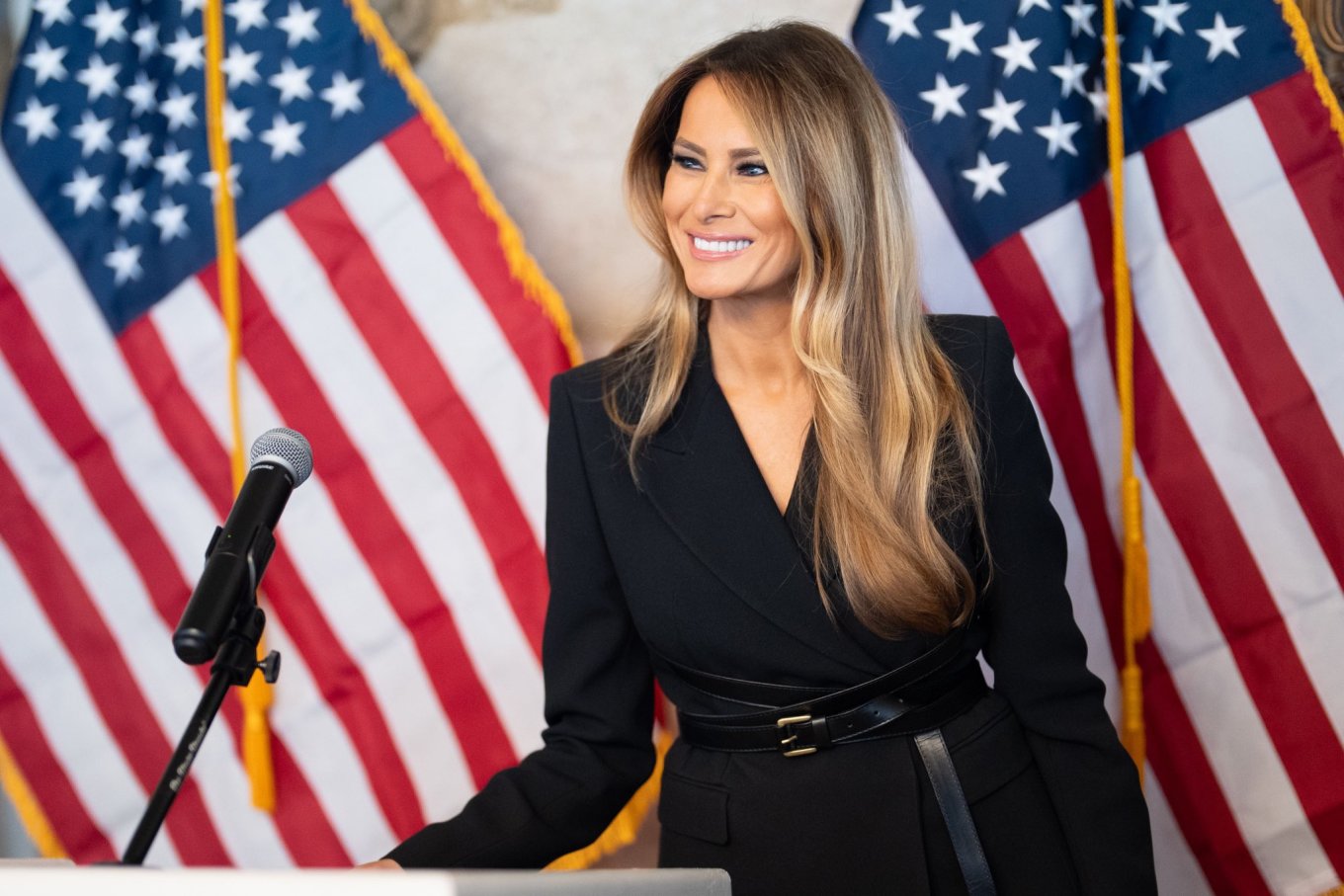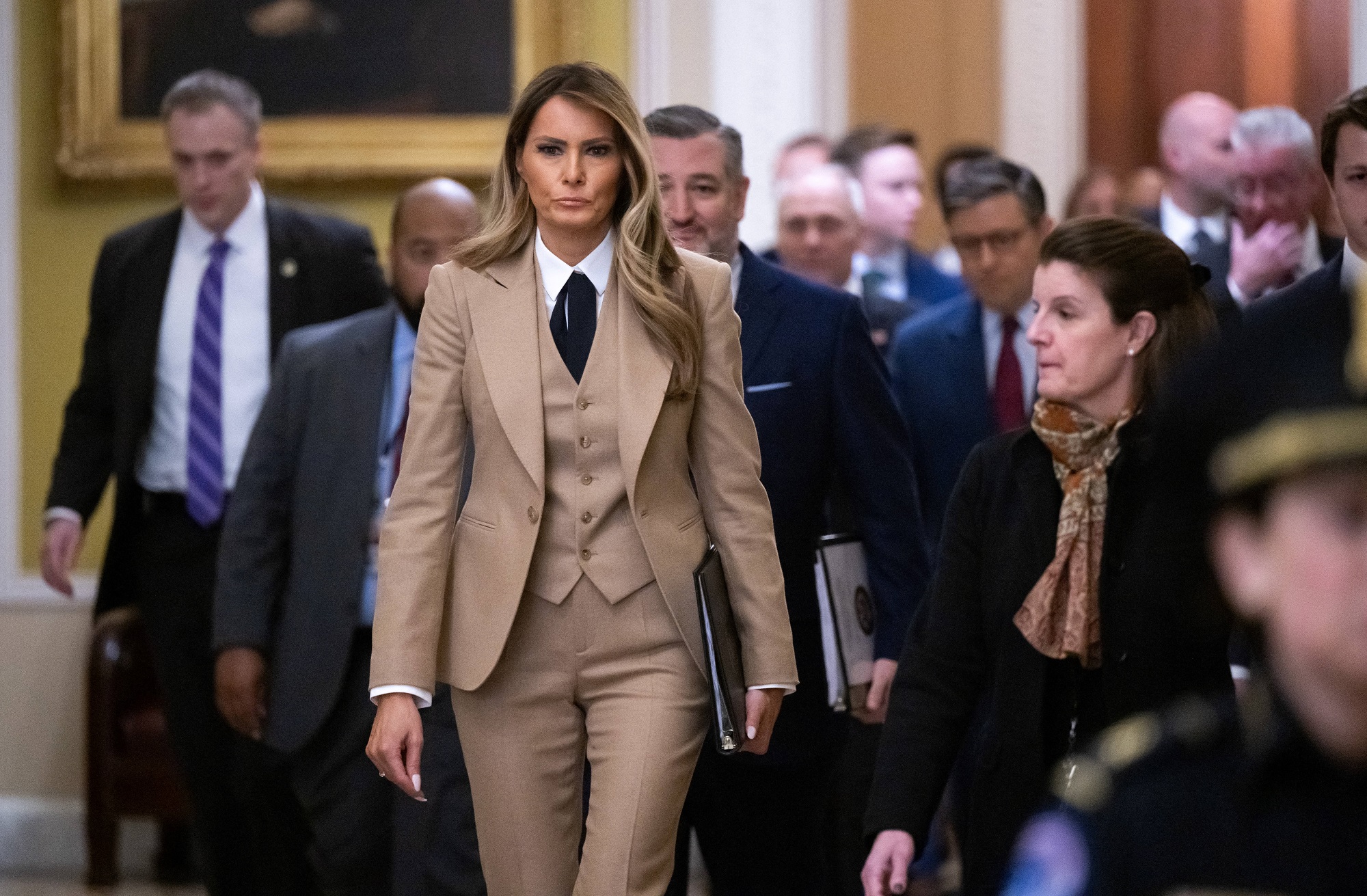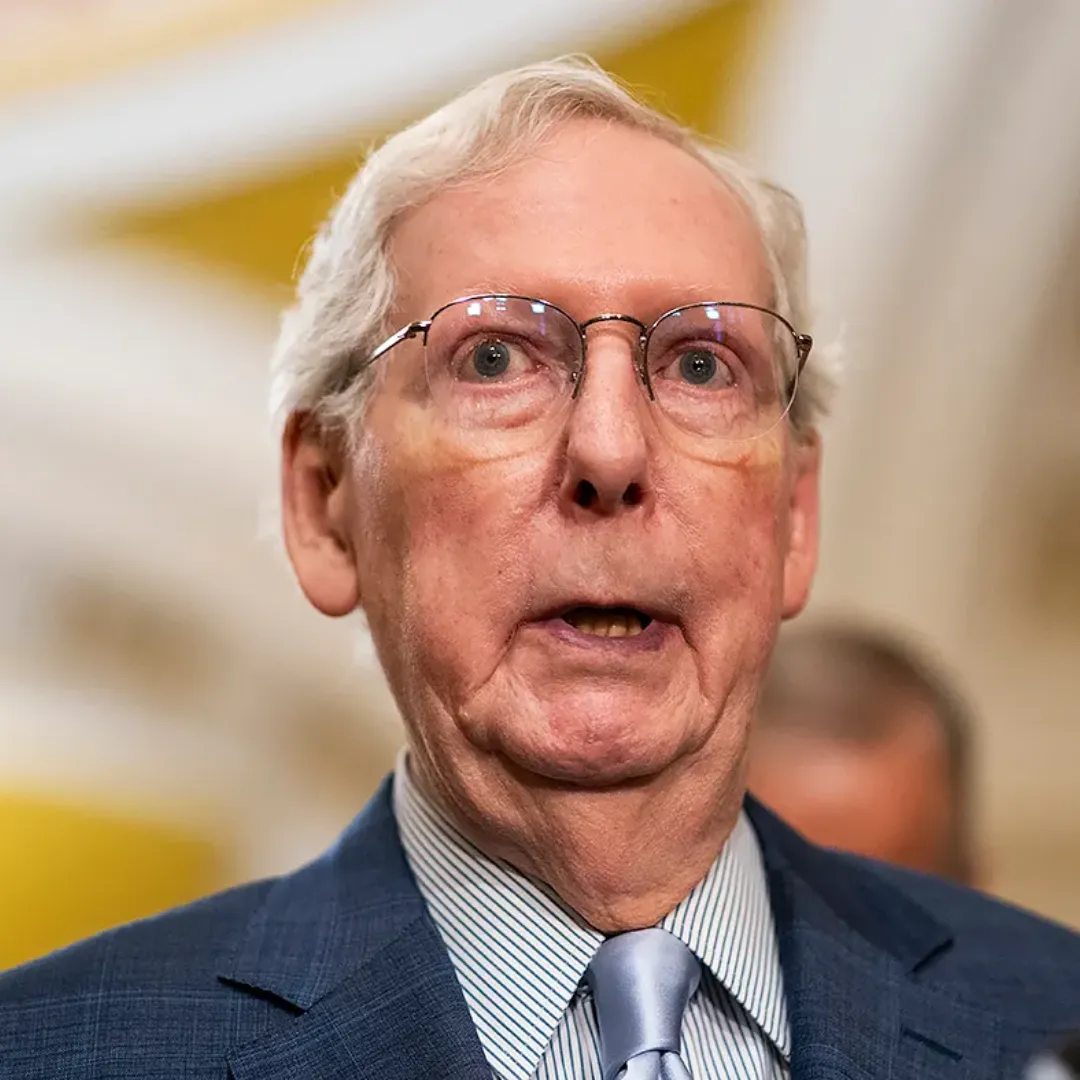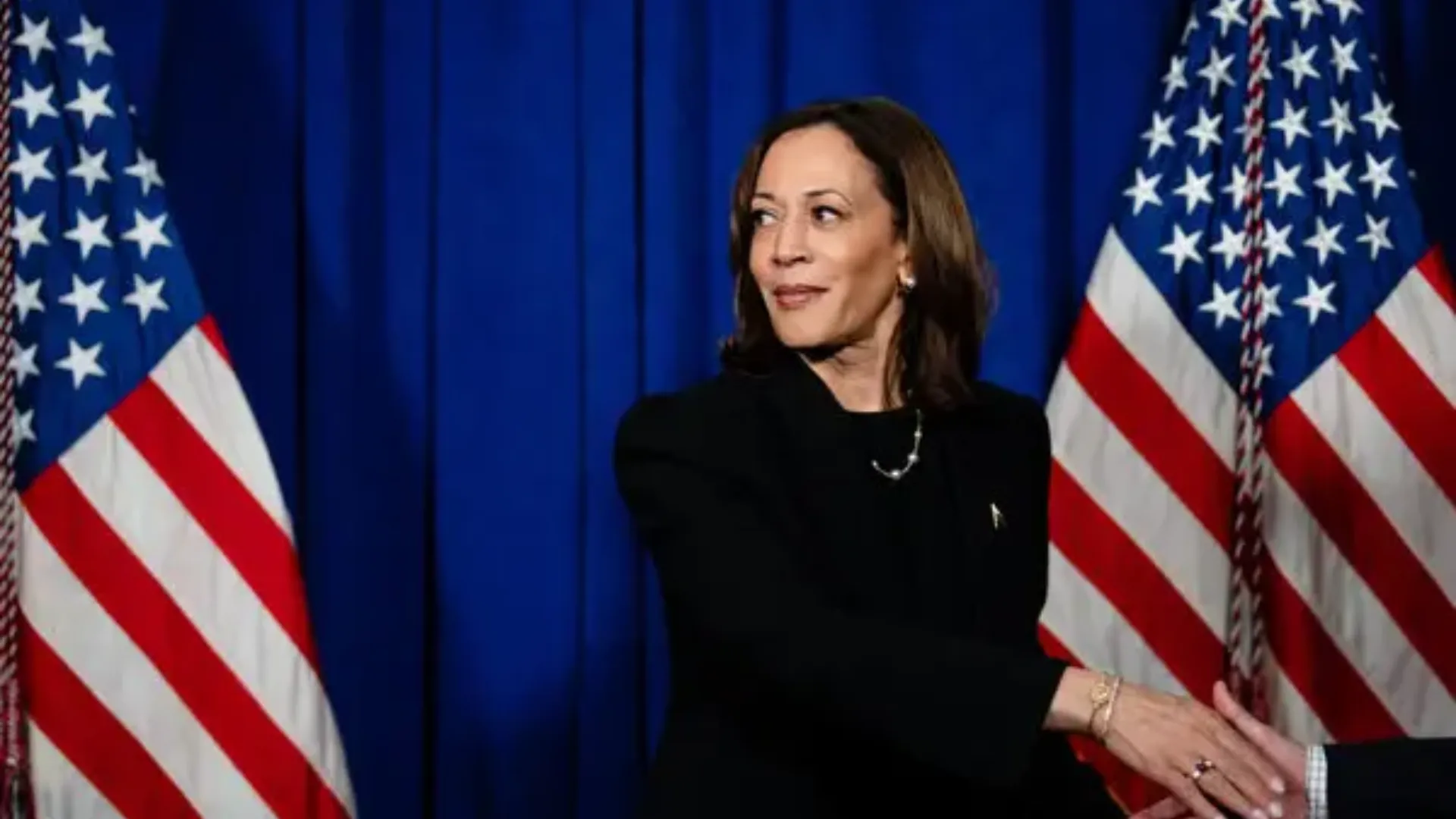
In an audacious moment at a rally in Los Angeles over the weekend, Democratic California Representative Maxine Waters took aim at First Lady Melania Trump, suggesting that President Donald Trump should look into her immigration status, even hinting at the possibility of her deportation. Waters, known for her sharp critiques of the Trump administration, made these remarks while speaking to a crowd during an anti-DOGE protest, which was part of a broader demonstration against the Trump administration's policies.
The context for Waters’ comment stems from President Trump's controversial stance on birthright citizenship, a concept enshrined in the 14th Amendment of the U.S. Constitution. Trump has long sought to curtail birthright citizenship for children born to undocumented immigrants, and he issued an executive order on his first day in office aimed at narrowing the scope of this right.
Waters, seemingly challenging Trump’s focus on undocumented immigration and birthright citizenship, questioned whether the first lady's immigration history should be scrutinized in light of the administration's broader immigration policies.
“When he [Trump] talks about birthright, and he’s going to undo the fact that the Constitution allows those who are born here, even if the parents are undocumented, they have a right to stay in America.
If he wants to start looking so closely to find those who were born here and their parents were undocumented, maybe he ought to first look at Melania,” Waters was heard saying from the stage of the rally, with several videos circulating on social media confirming her remarks.
Her comments stirred a storm of reactions, particularly among conservative critics, who were quick to slam the California lawmaker for her remarks. In her statement, Waters pointed out that Melania Trump’s parents, Viktor and Amalija Knavs, had been born in the former Yugoslavia and that Melania herself became a U.S. citizen in 2006.
The First Lady’s legal path to citizenship, which involved sponsoring her parents for green cards and eventually U.S. citizenship, became the focal point of Waters’ critique.
“We don’t know whether or not her parents were documented. And maybe we better just take a look,” Waters added, seemingly raising doubts about the legitimacy of Melania Trump’s family’s immigration process.
The statement quickly ignited a heated debate online, with critics on both sides of the aisle questioning Waters' motives and the implications of her words.

Melania Trump, born in 1970 in the former Yugoslavia (now Slovenia), moved to the United States in 1996 to pursue a career as a model. She eventually became a U.S. citizen in 2006, a process that involved a legal pathway and the sponsorship of her parents for green cards and later citizenship.
In 2018, her parents, Viktor and Amalija Knavs, officially became U.S. citizens, after Melania secured her own citizenship.
The first lady's citizenship journey has been scrutinized by some in the public, particularly due to her connection to her parents’ immigration status. After Melania’s citizenship, she sponsored her parents for green cards and, following a legal process, they became naturalized citizens as well.
Waters’ comment, suggesting that the Trump administration might want to “look at” Melania’s family’s immigration status, appears to be a direct reference to the political discourse around birthright citizenship that has been a cornerstone of Trump’s immigration agenda.
In her comments, Waters was referencing the 14th Amendment’s guarantee of citizenship to “all persons born or naturalized in the United States,” a right that has long been contested by Trump and his allies. The Trump administration has repeatedly sought to limit the scope of this provision, specifically targeting individuals born to undocumented immigrants.
In 2018, President Trump signed an executive order aimed at narrowing the interpretation of birthright citizenship, seeking to prevent children of illegal immigrants from automatically receiving U.S. citizenship.
Despite the controversy surrounding the issue, Waters’ remarks appear to aim at using the First Lady's status as a point of contention to challenge the broader debate on birthright citizenship. Her suggestion that Melania’s family’s legal status should be examined adds a provocative angle to the ongoing debate about immigration laws and the rights of those who are naturalized.

Waters’ comments on Melania Trump were part of her broader critique of the Trump administration’s immigration policies, which have been a consistent point of contention for her throughout her tenure in Congress. As an outspoken critic of Trump, Waters has routinely called out the administration for its treatment of immigrants, particularly its stance on undocumented immigration and family separations at the border.
During her remarks at the rally, Waters also criticized Trump’s broader policy agenda and the Trump administration’s efforts to reduce the size of the federal government. Waters joined the protest against the Department of Government Efficiency’s efforts to audit federal agencies in search of overspending, fraud, and corruption, particularly targeting the immigration system and its impact on families.
“We are here because we are not going to let Trump, we’re not going to let Elon Musk, his co-president, or anybody else take the United States Constitution down,” Waters declared during the rally, reinforcing her commitment to protecting democratic principles and opposing what she views as harmful policies by the Trump administration.
Waters’ comments were part of a larger protest movement in Los Angeles, where hundreds gathered to oppose the Trump administration’s policies on government efficiency and immigration reform.
As soon as Waters’ comments were posted on social media, they began to spread rapidly, sparking a backlash from conservative commentators and supporters of the Trump administration. Many criticized Waters for what they saw as a baseless attack on Melania Trump, with some arguing that it was inappropriate for a sitting member of Congress to call for the investigation or deportation of a private citizen based solely on her immigration history.
Conservative figures were quick to defend Melania, dismissing Waters’ comments as politically motivated and divisive. Many pointed to the fact that Melania Trump had legally followed the immigration process and became a U.S. citizen through the standard naturalization procedure, which has been a legal pathway for immigrants for decades.
On the other side, Waters’ supporters argue that her comments were not meant to target Melania personally but rather to highlight what they view as the hypocrisy of the Trump administration’s stance on immigration. By invoking Melania’s own immigration process, Waters appeared to be drawing attention to the broader issue of birthright citizenship and the double standards within the administration's policies.

The debate over Waters’ remarks became a flashpoint for deeper issues related to immigration, citizenship, and the application of U.S. immigration law. Waters has long been an advocate for immigrant rights and has been at the forefront of efforts to challenge the Trump administration’s policies on immigration and refugee protection.
Her remarks, while controversial, shed light on the tension surrounding Trump’s immigration reforms and the often contradictory nature of policies that target immigrants while allowing others to legally navigate the system.
The contrast between Melania Trump’s legal immigration journey and her husband’s policies on undocumented immigration highlights the complex and often contradictory nature of the debate over U.S. immigration laws. While Melania Trump followed a legal pathway to citizenship, President Trump has sought to curtail legal immigration and block access to benefits for those who are legally seeking asylum or refuge in the United States.
In addition, Trump’s executive order to limit birthright citizenship and his repeated rhetoric against immigrants have raised questions about the fairness and consistency of U.S. immigration laws. Waters’ comments, though inflammatory, underline the broader concerns about how policies are applied selectively depending on political affiliation or status, especially when those affected are connected to those in power.
By invoking Melania Trump in her critique, Waters highlighted the tension between Trump’s anti-immigrant rhetoric and his family’s own legal immigration story. Whether her remarks were aimed at Melania personally or used as a rhetorical tool to challenge Trump’s immigration policies, they have ignited a firestorm of debate that underscores the broader divide over how the United States should treat immigrants and naturalized citizens.
Maxine Waters’ suggestion to investigate and potentially deport Melania Trump brings into sharp focus the ongoing debate over immigration policies and the rights of naturalized citizens in the United States. While Waters’ remarks about the First Lady were undoubtedly controversial, they served as a powerful critique of the Trump administration’s stance on birthright citizenship and its broader approach to immigration reform.

By drawing attention to Melania Trump’s own immigration history, Waters raised important questions about the inconsistency of policies that target some immigrants while overlooking others in positions of power.
The fallout from Waters’ comments will likely continue to fuel the larger conversation about immigration reform in the United States, particularly as the nation grapples with issues of citizenship, fairness, and the treatment of immigrants. Whether Waters’ remarks were aimed at undermining Melania personally or used to spotlight the contradictions in the Trump administration’s immigration policies, they have certainly added another layer to the divisive discourse surrounding immigration in America.



